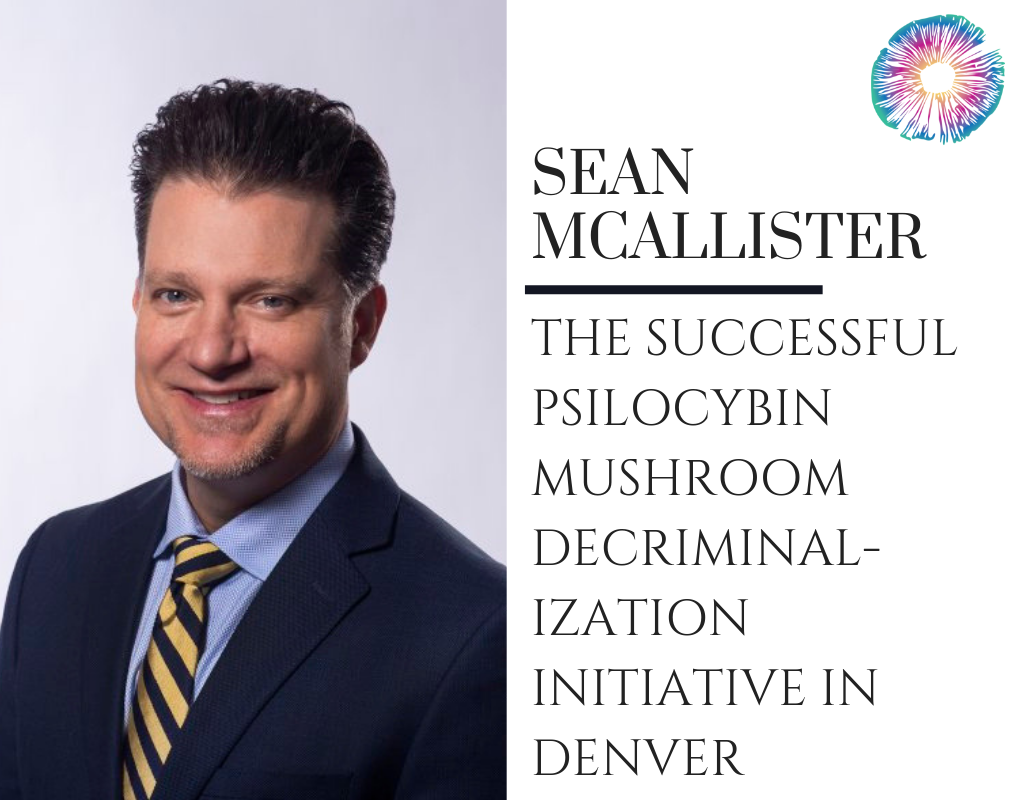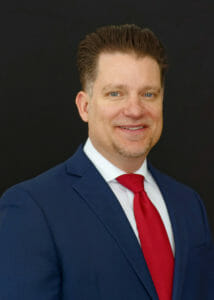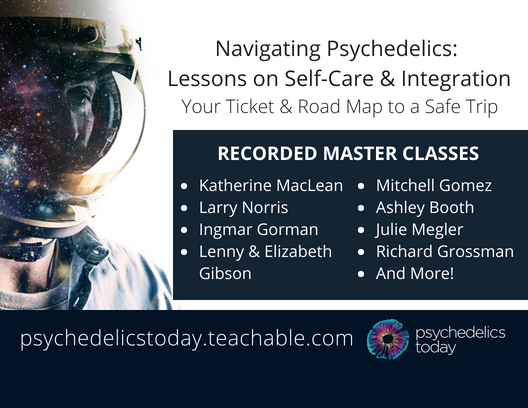
In this episode, Joe records with Sean McAllister, an attorney who helped advise Decriminalize Denver. During this special, extra episode, Sean helps us understand the language in the recent bill for Mushroom Decriminalization in Denver, CO.
3 Key Points:
- Recently, Psilocybin Mushroom Decriminalization passed on the ballot in Denver, CO.
- Psilocybin mushrooms have not been made legal, they have simply been decriminalized. This means that Denver has the lowest law enforcement priority around psilocybin and that no money can be used to criminalize this behavior.
- Decriminalization of Psilocybin in Denver is a big step toward changing the stigma around psychedelics. But we need to be careful, decriminalization is just a tiny step in the right direction and we need to be respectful and responsible with this initiative.
Support the show
- Patreon
- Leave us a review on iTunes
- Share us with your friends – favorite podcast, etc
- Join our Facebook group – Psychedelics Today group – Find the others and create community.
Navigating Psychedelics
Trip Journal Integration Workbook


Show Notes
On May 8th, the city of Denver, Colorado voted yes on I-301, which decriminalizes the possession and use of Psilocybin-containing mushrooms. The official results will be certified on May 16th. As of May 9th – the unofficial results are – yes (50.6%) and no (49.4%).
I-301 decriminalizes adult (21 years or older) possession and use of Psilocybin mushrooms – making these offenses the lowest priority for law enforcement. This initiative also prohibits law enforcement to spend money and resources enforcing arresting adults with possession of mushrooms.
Sean’s Role in the Mushroom Decriminalization in Denver, CO
- Sean is an Attorney with McAllister Garfield Law Firm in Denver
- He has done a lot with cannabis law since 2005
- He heard about the Mushroom Decriminalization campaign and began working with them
- His role started in January to help the team understand what it would look like if the bill passed and his role definitely continues going forward now that it has passed
What the Vote Means
- “Decriminalize” means just that
- Psilocybin mushrooms have not been made legal, they have simply been decriminalized
- “You should never be arrested for putting something in your body that grows naturally in nature.” – Sean
- This means that Denver has the lowest law enforcement priority around Psilocybin
- It’s not legal, it’s not regulated
- This bill means that a person cannot be imprisoned for possession and cultivation for personal possession amounts
- The city is not supposed to spend any money to criminalize this behavior
- You can grow them to eat them yourself, but you can’t grow them to sell them
- This also doesn’t mean that groups can host events and ‘give out’ mushrooms as a gift in return for a donation, this is not good behavior for this initiative
- This initiative is simply a first step at looking at mushrooms in a better light and reducing the stigma
- For the benefit of this bill passing, we have to be careful about amounts, the smaller the amount of mushrooms the better
- There isn’t an amount listed in the bill to distinguish between personal use and intent to sell
- The city has to establish a review commission
- What this commission is supposed to do is track the public safety impact, use, criminal justice impact, etc
- We hope and guess that psilocybin will not impact any of these, just like how marijuana did not impact anything for the worse when it was decriminalized
- Once the city sees the results, they won’t have so much stigma about it, and Denver will lead the way for the state and the rest of the nation for sensible drug policy
Political Pushback
- The typical response was “we already legalized marijuana, let’s not jump to something else”
- Sean thinks this gives Denver an amazing reputation, that it understands therapeutic ability and research and no tolerance for the drug war
- “We need a system that addresses public safety concerns but maintains as much personal liberty as possible on these topics” – Sean
Other Initiatives
- Sean is a part of Chacruna, based in San Francisco
- Oakland is attempting to Decriminalize Nature, which by nature means all naturally occurring substances
- They aren’t on a ballot, they are looking to convince city council to agree with it and accept it
- California attempted to raise signatures to be on the ballot in the 2018 election but it failed to get on the ballot
- Oregon is now collecting signatures to get on the ballot at the state level in 2020
- Oregon’s model is for medicalization, Sean expresses concern for a purely medical model
- Between big pharma and quiet equity firms, they want to monetize on psychedelics like they did with marijuana, and that’s what we risk with medicalization
- Psychedelic Liberty Summit in 2020 in the Bay Area will be to talk about the rights and wrongs around psychedelic initiatives
Final Thoughts
- Sean mentions a possible system that revolves around a licensing structure
- Similar to how we get a drivers license; we practice, we take tests, etc.
- For psychedelics, we would need to learn the effects, harm reduction techniques, take tests to verify our knowledge, etc and receive a license that allows us to use psychedelics freely
- If we abuse psychedelics and use them improperly, then we would get our license taken away, suspended, etc.
- Overall, after this initiative passing, we have to be careful we don’t ruin this victory with poor behavior
- Let’s just do what we’re doing respectfully, responsibly, and to ourselves
Links
- https://mcallistergarfield.com/
- https://chacruna.net/council-for-the-protection-of-sacred-plants/
- https://www.linkedin.com/in/attyseanmcallister/
About Sean McAllister

Sean T. McAllister is one of the nation’s leading cannabis business attorneys, licensed to practice law in both Colorado and California. Sean’s legal work focuses on the complex interplay between corporate law and state cannabis regulatory structures and federal law. Sean is a recognized leader in the cannabis industry. In 2004, he founded Sensible Colorado, which worked on all of the ballot initiatives in Colorado that culminated in recreational cannabis legalization in 2012.



